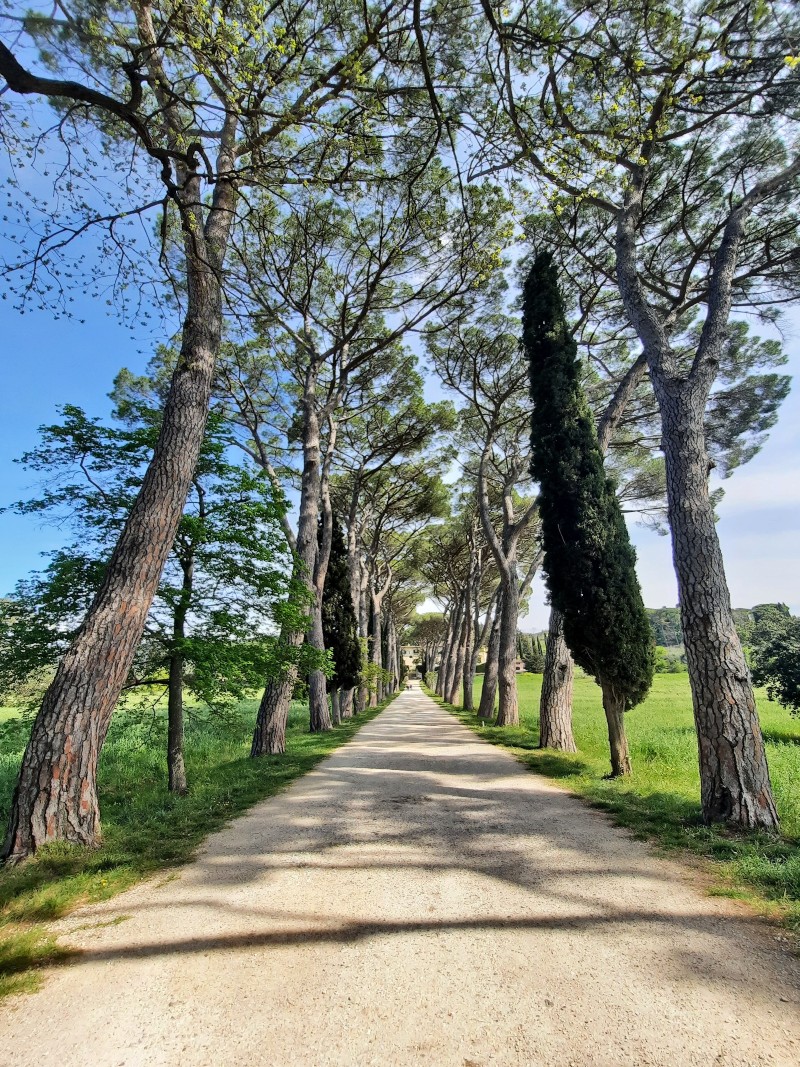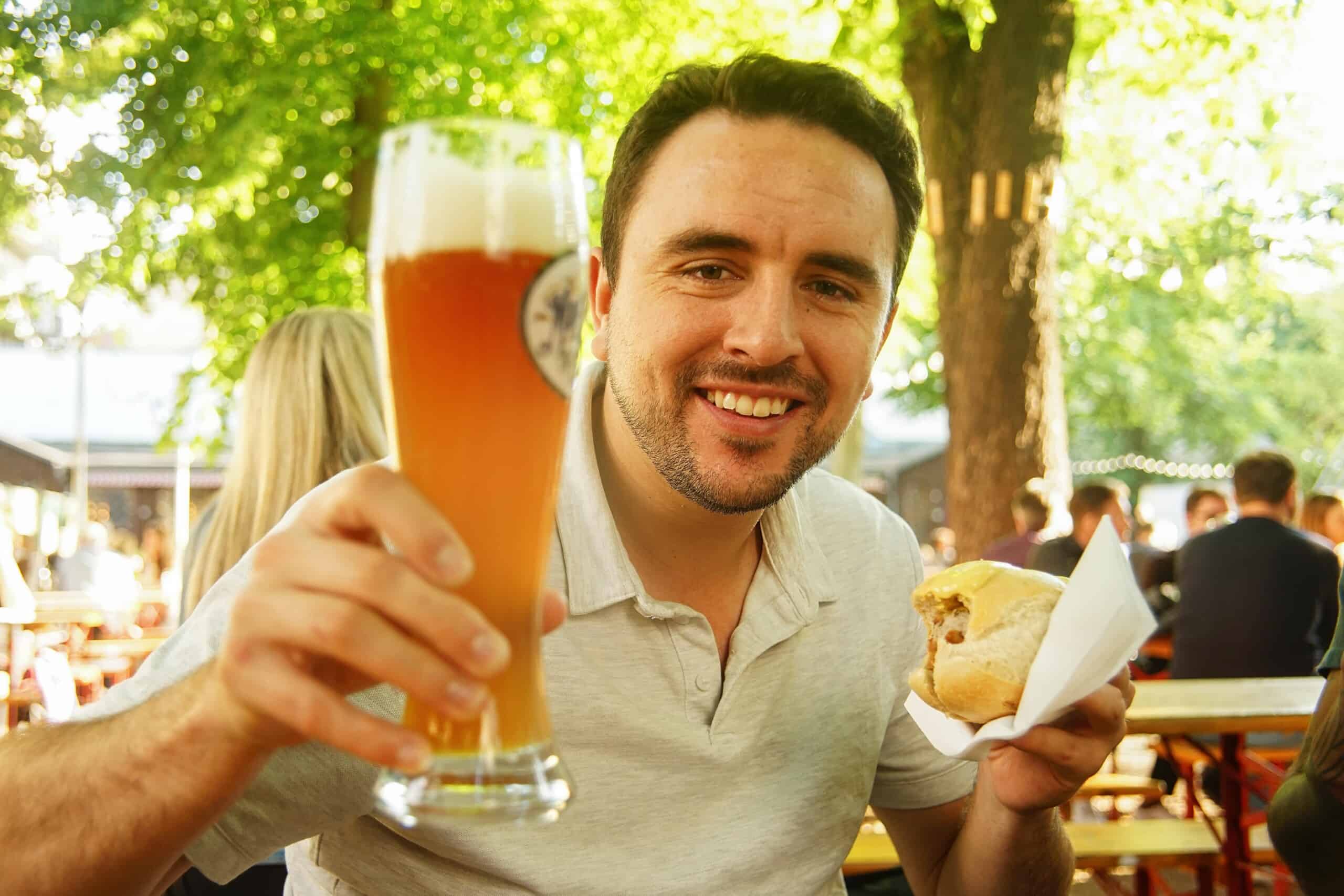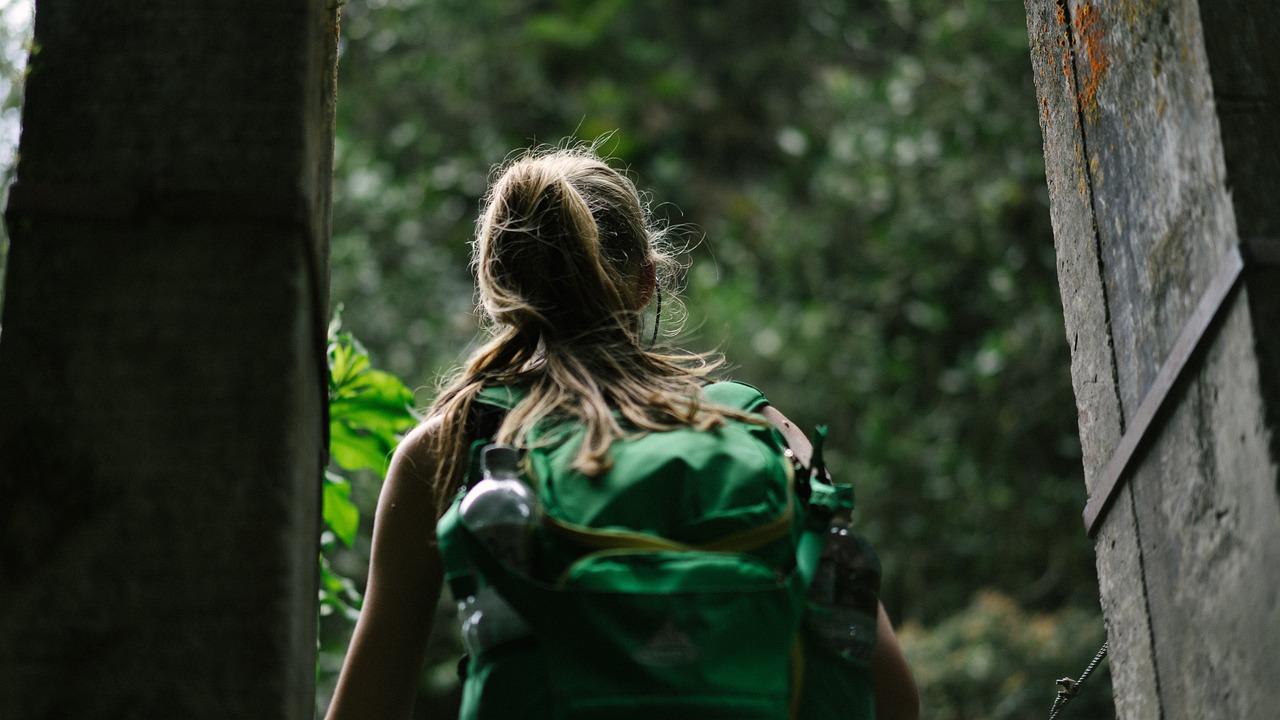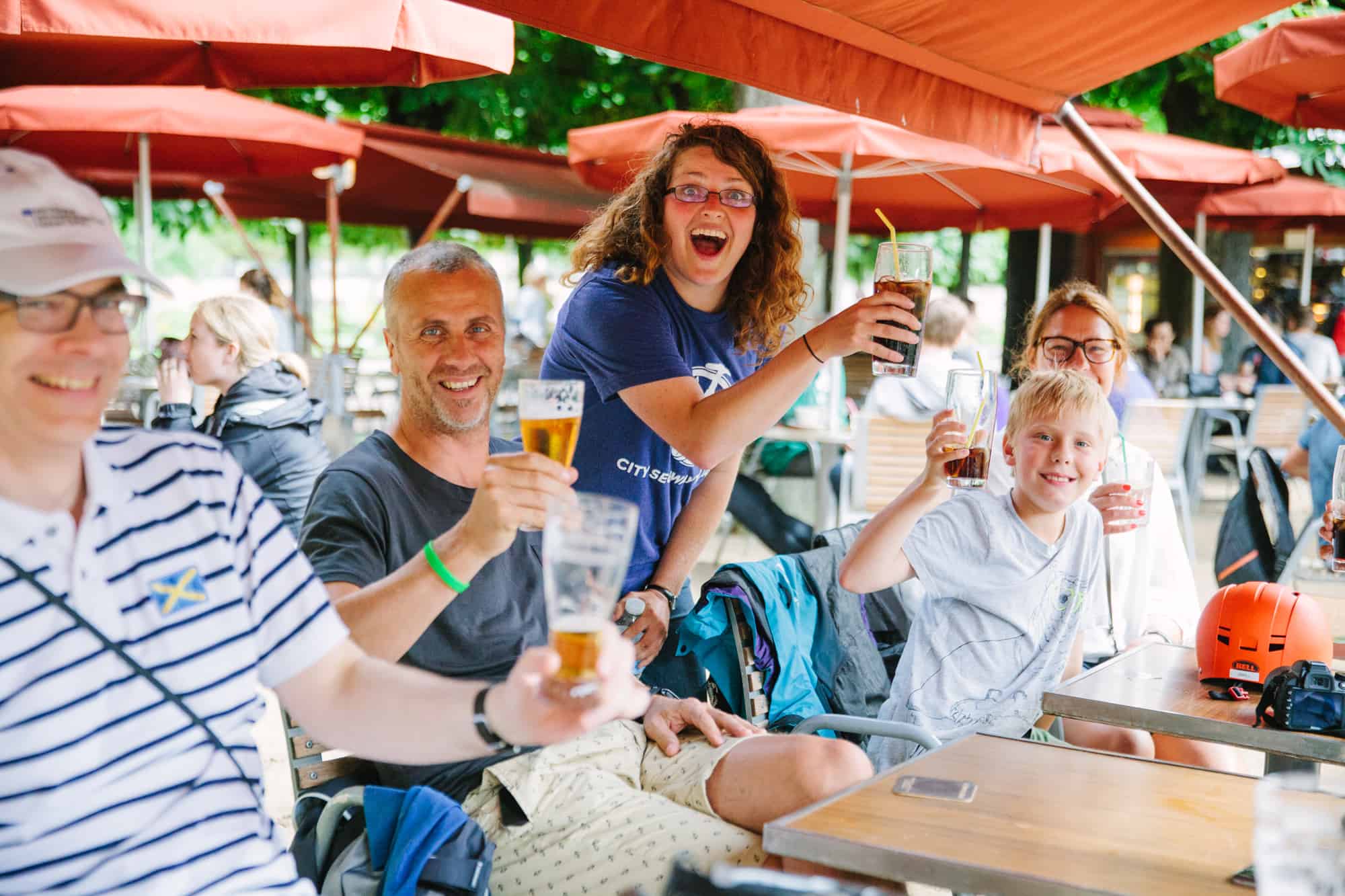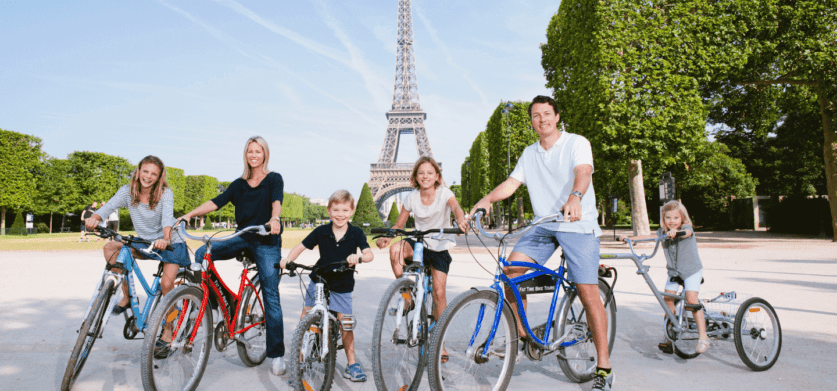After around 10 minutes of being in Germany it will become quite apparent that it is often cheaper to be drinking alcohol than not.
In corner shops a bottle of water will generally cost more than a beer. It is also legal to drink in public, so don’t be shocked if you see someone heading to work in the morning with a something a little more exciting than coffee in hand.
German laws regulating alcohol are some of the least restrictive in the world. Contrary to other countries (USA/UK) the legislation is not designed to keep young people away from alcohol (which tends not to work anyway) but rather teach them an appropriate approach to drinking. This kind of approach takes the illegality out of drinking and thus people tend to be a bit calmer with it.
There are three beverages that we recommend you drink whilst in Berlin.
Berliner Luft
This is a clear peppermint liquor which has both a stop and start history as well as a serious cult following. The name translates literally to ‘Berlin Air’.
As the wall fell in 1989 many old East German companies struggled to compete on the free market. One such factory was that of Schilkin, an East Berlin Schnapps and Vodka maker. The Schilkin’s arrived from St.Petersburg in the early twenties, fleeing the Bolshevik Revolution. They bought an old farm and started production. The farm was destroyed during the World War II but Sergei Schilkin and his son-in-law Peter Mier restored it to its former glory. With the influx of the Soviet Army, their vodka business boomed. As the wall was erected in 1961 Schilkins’ daughter and Mier fled to the West. Sergei stayed in East Berlin and eventually the government seized ownership of the firm, leading him to retire in the eighties. As the wall fell and the reunified government handed back private property which had been nationalized, Schilkin came out of retirement. Along with his son-in-law who had fled East Berlin some 40 years ago, they started once more.
They faced many difficulties, West German chains buying out East German supermarkets and stocking primarily Western produce; trying to sell their stock in much more diverse market. Luckily many old East Germans quickly grew tired of the new products from the West and reverted to their old tastes. Business is now going through the roof as young people in Berlin have developed a serious affection for this alcoholic mouthwash. The revival of this drink is owed a lot to a wave of ‘Ostalgie’ in the late nineties, where old GDR products were revered for their charm and history. Highlighted by many light-hearted Film and TV productions about the old East.
Most bars in Berlin serve ice cold shots of Berliner Luft, usually for a very reasonable €2. So make sure to grab yourself a few.
Rotkäppchen
Rotkappchen Sekt was the most famous sparkling wine brand in the GDR. Although the brand actually dates back to 1895 when a company called Kloss & Foerster trademarked the name ‘Little Red Riding Hood’ for their selection of wine. Today the brand dominates the German sparkling wine market, holding a nearly 40% market share. Last year a whopping 115 million bottles were sold.
After reunification the company struggled, like most others in the old GDR. However it re-established itself under a new organization founded by a number of former employees. Similar to Berliner Luft, Rottkäppchen benefited greatly from ‘Ostalgic’ attention in the past 25 years.
Club Mate
This drink is not actually alcoholic but it is stacked to the rafters with caffeine, so pretty much just as intoxicating. Full confession – I drink at least one bottle a day. It is a Mate-Ice-Tea, basically a carbonated drink infused with extract of mate, a caffeine-laden plant native to South America.
This drink is the darling of tech start-ups and hacker culture. Many bars in Brooklyn, Melbourne and London have started importing crates in to fuel their local hipsters. It has appeared in many left wing media news sites like Al-Jazeera and Vice.
One hacker, Jens Ohlig describes his first experience of the drink as ‘tasting like horse urine filtered through hay’. He now drinks 10 bottles a day. I would not recommend that. But I would suggest you get one instead of a coffee whilst you are in Berlin.
